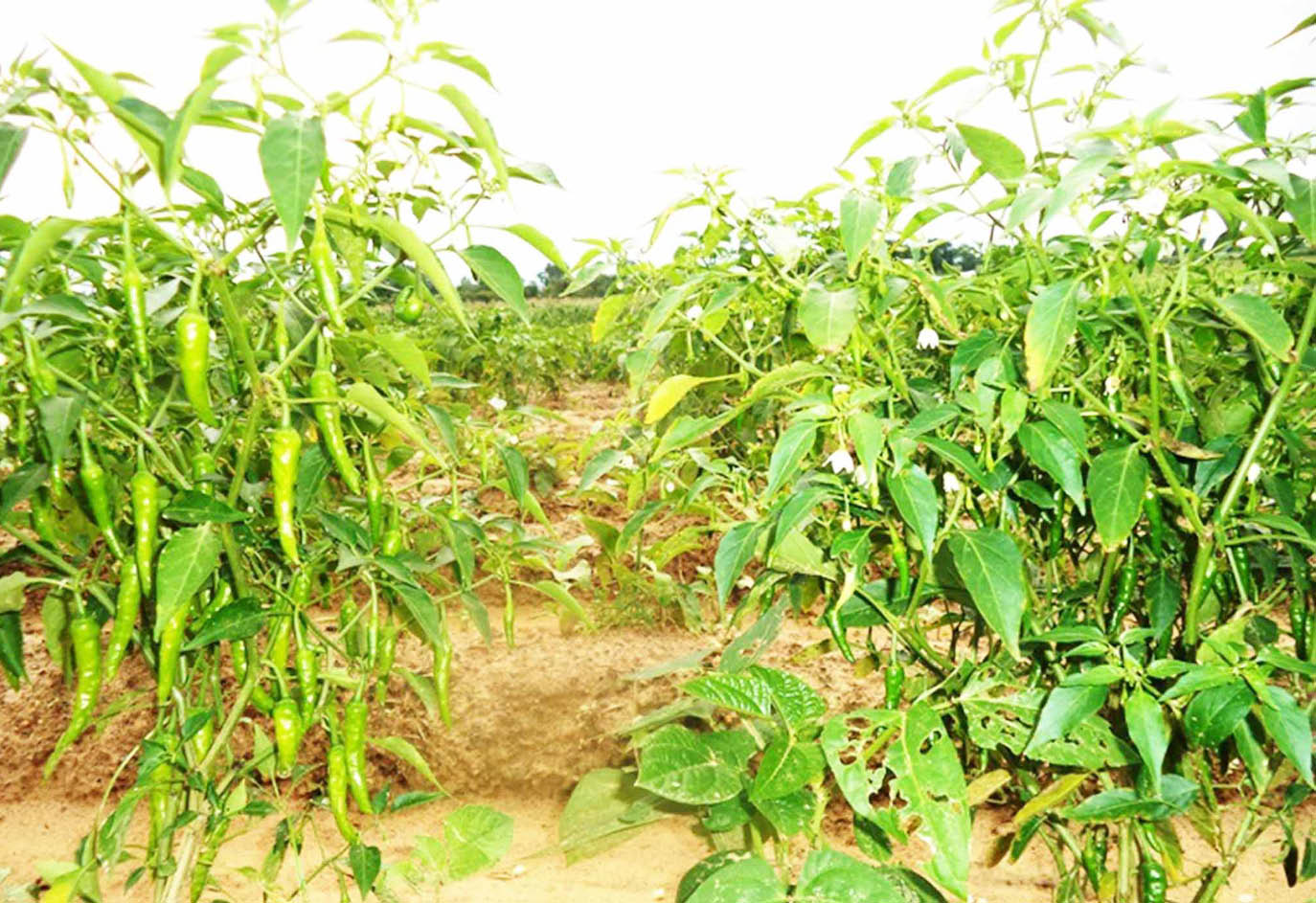Unlike most vegetables, Chilli pepper, popularly called Attaruhu in the northern part of Nigeria, is one of the vegetables farmers say they don’t lose their investment on.
The greater part of pepper production in Nigeria is undertaken in the northern parts of the country including Kaduna, Kano, Jigawa, Katsina, Sokoto, Plateau and Bauchi states.
According to stakeholders in the business, pepper farming is one of the most profitable businesses in Nigeria and other countries of the world. Just like tomato farming and cucumber farming, pepper farming can be very lucrative.
They say it is an evergreen food business that is highly accessible in any culture or race, can withstand toughness and can easily be preserved for a long time, saying the demand for the crop is so high that any part of it hardly gets wasted. There is also a readily available market for it and the demand far outweighs the supply of the product.
Explainer: 5 major developments from presidential, National Assembly polls
AGRO SOLUTIONS: 6 things farmers need to know about Disease Suppressive Soils (DSS)
According to Dauda Sunday, a pepper farmer in Dorowa Babuje Community of Barikin Ladi Local Government Area of Plateau State, pepper farmers never lose their investments due to a lot of factors, compared to other vegetables tomatoes, cucumber, cabbage, pineapple, among others.
Sunday said, “Farmers don’t require much money to invest and the process doesn’t require much labour compared to other vegetables that require money and attention. It does not also need much fertilizer and pesticides which consume heavy money from farmers. In this community, we hardly use pesticides for pepper because the soil sustains plant growth, especially the pepper. But you can’t rule out applying fertilizer completely.
“Even if you don’t have money to buy the fertilizer at the point of planting, you don’t have to worry as you can delay application of the fertilizer and pesticides if necessary for some weeks, but you can’t do that for tomatoes which will undoubtedly need attention, fertilizer and pesticides,” he added.
He also explained that “Once a farmer is able to grow Chilli pepper, they can harvest the crop more than 10 times before it dies down. This means that you can harvest it for many times and get your money back. If you don’t make good money in the first or second harvest, you can be lucky in subsequent harvests.
“You can make money in a single plant for many times before the end of the season. You hardly take the crop to the market and return home with it. Apart from that, even if the market is not favourable enough, you can’t lose because, it doesn’t rotten easily. You can easily dry it if you want to sell it at a cheaper price and the dried one is very expensive.
“So, pepper farming is for the low-income farmers, who may not have enough money to invest in cultivation that will demand huge capital. Although rich farmers can invest in it but for those who don’t have enough money, they can easily engage in pepper farming and realize good money. I like pepper farming because it’s for the poor farmers like us. I’ve benefitted a lot from it for over 10 years as a farmer. I have never lost my investment no matter the situation of the market,” Sunday said.
Christopher Chalom is another pepper farmer in the same Dorowa community who also said he has never lost his money in cultivation of pepper for the past 20 years, adding that pepper farming is for small scale farmers who engage in it due to the less risk involved.
Chalom agreed that pepper farming is for poor farmers who can engage in it without worrying over how to source for money for fertilizer and pesticides.
“When you plant tomatoes and don’t apply fertilizer at the needed time, the crop will be damaged and you subsequently lose your resources. Unlike tomatoes, pepper can be grown for sometimes without applying the fertilizer. You can plant it for over a month without fertilizer, and whenever, you are opportune to buy and apply the fertilizer, it would pick up, and everything would be well. That is one of the advantages of pepper farming.
“That is why we focus attention on pepper farming to avoid the possible risk of losing our resources. This doesn’t mean that we don’t cultivate other crops, but throughout the season, we engage in pepper farming and we enjoy it. We will harvest and sell time after time. I prefer it to other crops. It doesn’t bring money very fast but can be enjoyed for a long period of time. Like me, I cultivated only pepper this year because of the its advantages,” Chalom said.
Challenges of pepper farming
The farmers said though it is still better than other crops in terms of expenses and difficulties, pepper farming also has its challenges.
According to Chalom, pepper farmers need to be applying little fertilizer to the crop at regular intervals especially after a series of harvests, so that the breeding continues for some time, adding that during the hot season, pepper can be affected by a disease if properly cared for, which would damage a significant part of the farm. “If you are lucky and it rains during such experience, the disease could be washed out by the rain.”
The farmers said yellow and red pepper are often cultivated in the northern zone of the state where the soil is always favourable to the crop. The yellow pepper, according to farmers, does not require much water compared to the red one and both are mostly cultivated in a sandy soil zone which does not hold water all the time.
They said the yellow pepper also doesn’t breed like the red one, which is why where you can harvest a bag of red pepper, you hardly harvest half bag of the yellow one, making it more expensive than the red one.
We don’t lose our money in the business – Pepper sellers
Malam Hamza is a pepper seller at the popular perishable Farin Gada Market. He also said sellers of the crop hardly lose their money in the business, adding that for the past 20 years as a pepper seller, he’s never experienced much difficulties in the business.
“Yes, of course, we don’t lose as sellers of other perishable food items. Although, as a business man, you can’t completely rule out the possibility of losing something but such loss will not affect your capital. It takes a long time before you experience any loss,” he added.
The pepper seller further explained that due to the less risk in the business, “We buy bags of pepper, especially during the cold season and keep it for about two days or more before we sell it, and it doesn’t rotten. We, however, sell it on time because virtually everyone uses it in their foods. Due to the demand, as a small business man, I can sell three to five 50kg bags within five to seven hours in a day.”
He said one of the challenges involved in the business was that it doesn’t have a fixed price, adding that you can buy it today at a lower price and then tomorrow at a higher price or lower than what you earlier bought, but insisting that no matter the situation, one hardly loses in the business.

 Join Daily Trust WhatsApp Community For Quick Access To News and Happenings Around You.
Join Daily Trust WhatsApp Community For Quick Access To News and Happenings Around You.


